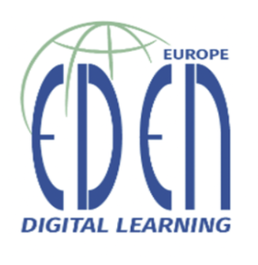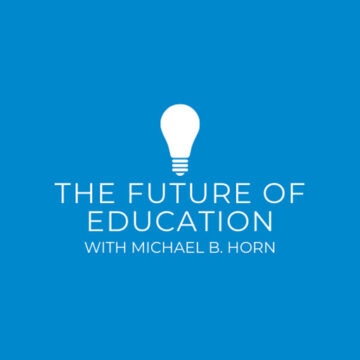
December 6, 2023
Article Notice – Online teaching during the COVID-19 pandemic: exploring science/STEM teachers’ curriculum and assessment practices in Canada
An article that scrolled across my electronic desk over the past few days.
- Isha Decoito
- Mohammed Estaiteyeh
Abstract – The COVID-19 pandemic necessitated school closures globally, resulting in an abrupt move to online/distance teaching or emergency remote teaching (ERT). Teachers and students pivoted from face-to-face engagement to online environments, thus impacting curriculum, pedagogy, and student outcomes across a variety of disciplines. In this paper, the authors focus on science/STEM teachers’ experiences with online teaching and learning in a Canadian context during the pandemic. Qualitative and quantitative data were collected through an online questionnaire administered to 75 Grade 1–12 science/STEM teachers in a Canadian province in May–July 2020. Through the TPACK framework and self-efficacy theory, the authors explore i) curriculum planning and implementation in online settings, ii) assessment practices and their effectiveness, and iii) student outcomes, as observed by the teachers. Results indicate that teachers used a variety of platforms, and choice of platform was mainly due to user-friendliness and interactivity, or administrative decision making. Despite teachers organizing online lessons during ERT, gaps were identified in teachers’ TPACK framework and self-efficacy, thus impacting their curriculum development, pedagogical approaches, and assessment practices. In general, teaching strategies included pre-recorded videos and self-directed learning in which teachers assigned specific tasks for students to perform independently. Teachers prioritized subject content and covering curriculum objectives over creative and student-centered pedagogical approaches. Assessment techniques employed were viewed by teachers as unauthentic and generally ineffective. Moreover, teachers reported difficulties addressing student needs and abilities, resulting in challenges providing equitable and inclusive online teaching. Finally, online teaching was viewed negatively by most teachers, in terms of student engagement and outcomes.
No comments yet.
RSS feed for comments on this post. TrackBack URI
- SEO Powered Content & PR Distribution. Get Amplified Today.
- PlatoData.Network Vertical Generative Ai. Empower Yourself. Access Here.
- PlatoAiStream. Web3 Intelligence. Knowledge Amplified. Access Here.
- PlatoESG. Carbon, CleanTech, Energy, Environment, Solar, Waste Management. Access Here.
- PlatoHealth. Biotech and Clinical Trials Intelligence. Access Here.
- Source: https://virtualschooling.wordpress.com/2023/12/06/article-notice-online-teaching-during-the-covid-19-pandemic-exploring-science-stem-teachers-curriculum-and-assessment-practices-in-canada-3/
- :is
- 07
- 1
- 10
- 12
- 2020
- 75
- a
- abilities
- across
- addressing
- administered
- administrative
- an
- and
- approaches
- article
- AS
- assessment
- assigned
- authors
- begin
- by
- Canada
- Canadian
- Category
- challenges
- choice
- comment
- comments
- content
- context
- covering
- COVID-19
- COVID-19 pandemic
- Creative
- Curriculum
- data
- Days
- decision
- Decision Making
- desk
- Despite
- Development
- difficulties
- disciplines
- due
- during
- Education
- effectiveness
- Electronic
- emergency
- employed
- end
- engagement
- environments
- equitable
- Experiences
- explore
- Exploring
- feedback
- few
- Finally
- Focus
- For
- Framework
- from
- gaps
- General
- generally
- Globally
- grade
- How
- HTTPS
- i
- identified
- identifier
- ii
- iii
- impacting
- implementation
- in
- included
- Inclusive
- independently
- indicate
- interactivity
- learning
- left
- Lessons
- mainly
- Making
- Meta
- Michael
- Moreover
- most
- move
- my
- needs
- negatively
- None
- Notice..
- objectives
- observed
- of
- on
- online
- or
- organizing
- outcomes
- over
- pandemic
- Paper
- past
- perform
- planning
- platform
- Platforms
- plato
- Plato Data Intelligence
- PlatoData
- pm
- Post
- practices
- prioritized
- providing
- qualitative
- quantitative
- really
- reduce
- remote
- Reported
- resource
- resulting
- Results
- School
- Science
- self-directed
- settings
- Simple
- site
- spam
- specific
- Status
- strategies
- Student
- Students
- subject
- syndication
- TAG
- tasks
- teachers
- Teaching
- techniques
- terms
- that
- The
- their
- theory
- this
- Through
- Thus
- to
- under
- used
- uses
- variety
- Videos
- viewed
- was
- were
- which
- with
- WordPress
- yet
- Your
- zephyrnet












